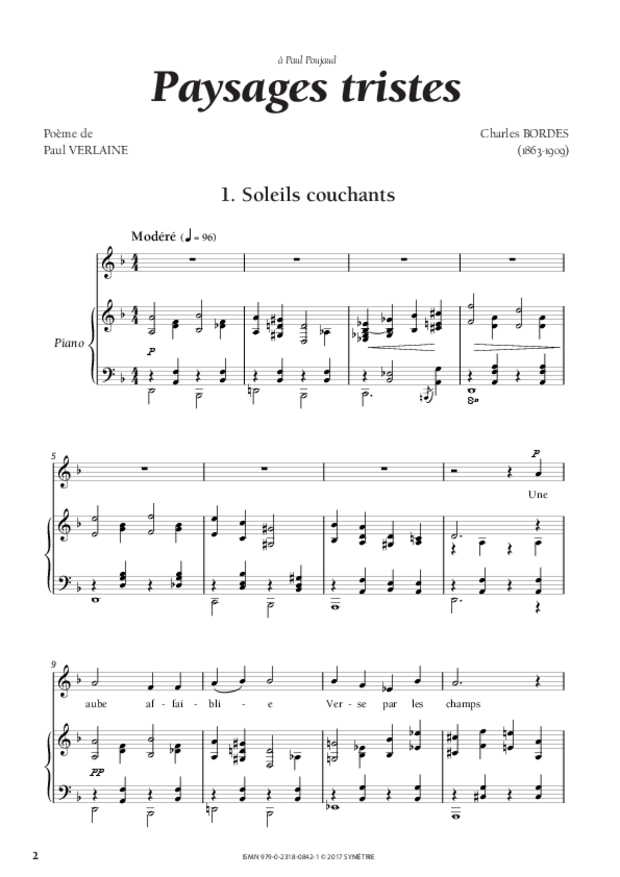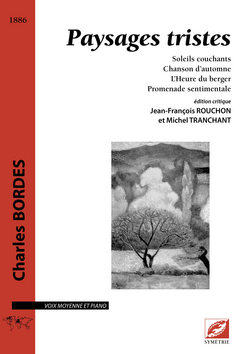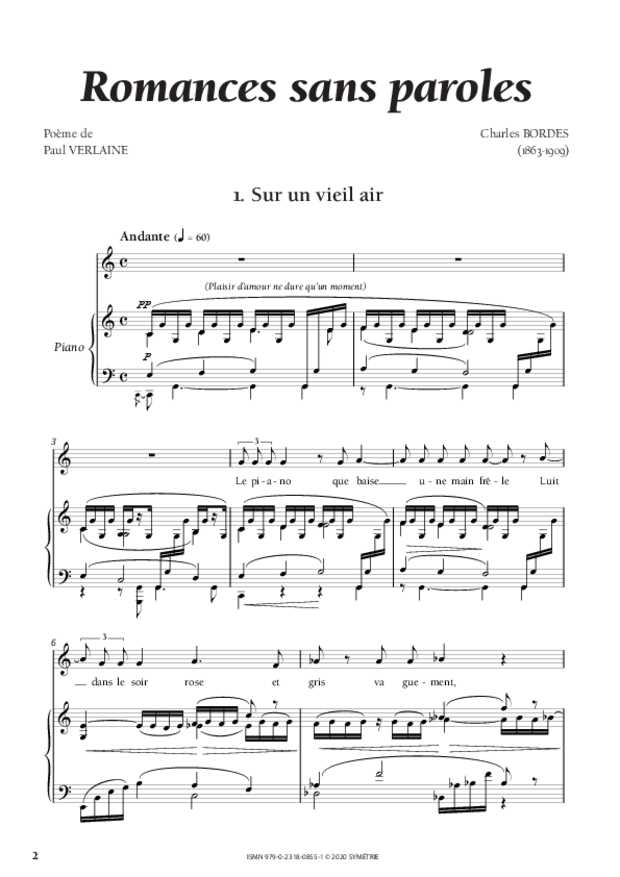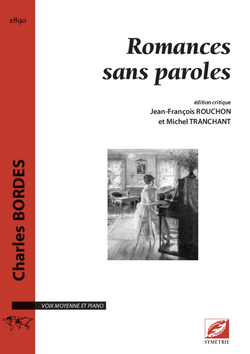Should one list the great French composers of the Belle Époque, Charles Bordes would not be named very obviously. Yet this composer, born in Touraine in 1863, held a very important position on the Parisian musical scene at the beginning of the 20th century. He was the youngest among the pupils of the “Franck gang”, a chapel master in Nogent-sur-Marne as soon as 1887, and was singled out for his work of collecting the Basque musical tradition, a commission by the Ministry of Education.
He gained important fame when he took over the direction fo the choir of St Gervais Church in 1890. A pioneer in the rediscovery of the Renaissance polyphonic repertoire and the French baroque music, he turned into a real concert producer, championing a repertoire then neglected, that he programmed with his choir during numerous events in Paris, in the Provinces and abroad.
In 1894 with Alexandre Guilmant and Vincent d’Indy, he founded the Schola Cantorum, a school music thought at the time as an alternative to the Paris Conservatoire, advocating an instruction less oriented towards virtuosity, and a more thorough education of musicians. Until 1902 and the relocation of the institution on St Jacques street, he was the real backbone of the Schola and held a central position there until he was victim of a stroke in his 40s. A very diminished Bordes settled in Montpellier, where he founded a regional schola and developed new music projects until he died in 1909.
In this over-active life, the composer found here and then a little time to compose mainly vocal works. As he never attended the Paris Conservatoire, he relied on the Société nationale de musique and his own concert networks to have his works performed. He founded the Édition mutuelle, a collective entreprise, meant to enable the publishing of his works and those of the composers linked with the Schola.
Bordes was first successful with art songs. The first – with Claude Debussy – to set Verlaine’s poems to music, he wrote some 37 vocal pieces with piano or orchestra accompaniment, often praised by the critics. In December 1909 an article in Le Figaro mentioned “songs of a grace which belongs to him alone, where the most inventive harmony meets the most seductive rhythmical whim”. The originality of the poetic choices, the important place left to experimentation, the personality of Bordes’ musical language make these pieces a remarkable corpus at a time where the genre was favored by most French composers.
Publications
Format bibliographique à copier
Bordes, Charles, Rouchon, Jean-François & Tranchant, Michel (édition scientifique). Romances sans paroles. Sur un vieil air – Spleen – Ô triste, triste était mon âme – Dansons la gigue, Symétrie, 2021, 28 p.Rouchon, Jean-François & Tranchant, Michel (édition scientifique), Bordes, Charles. Paysages tristes. Soleils couchants, Chanson d’automne, L’Heure du berger, Promenade sentimentale, Symétrie, 2018, 21 p.










